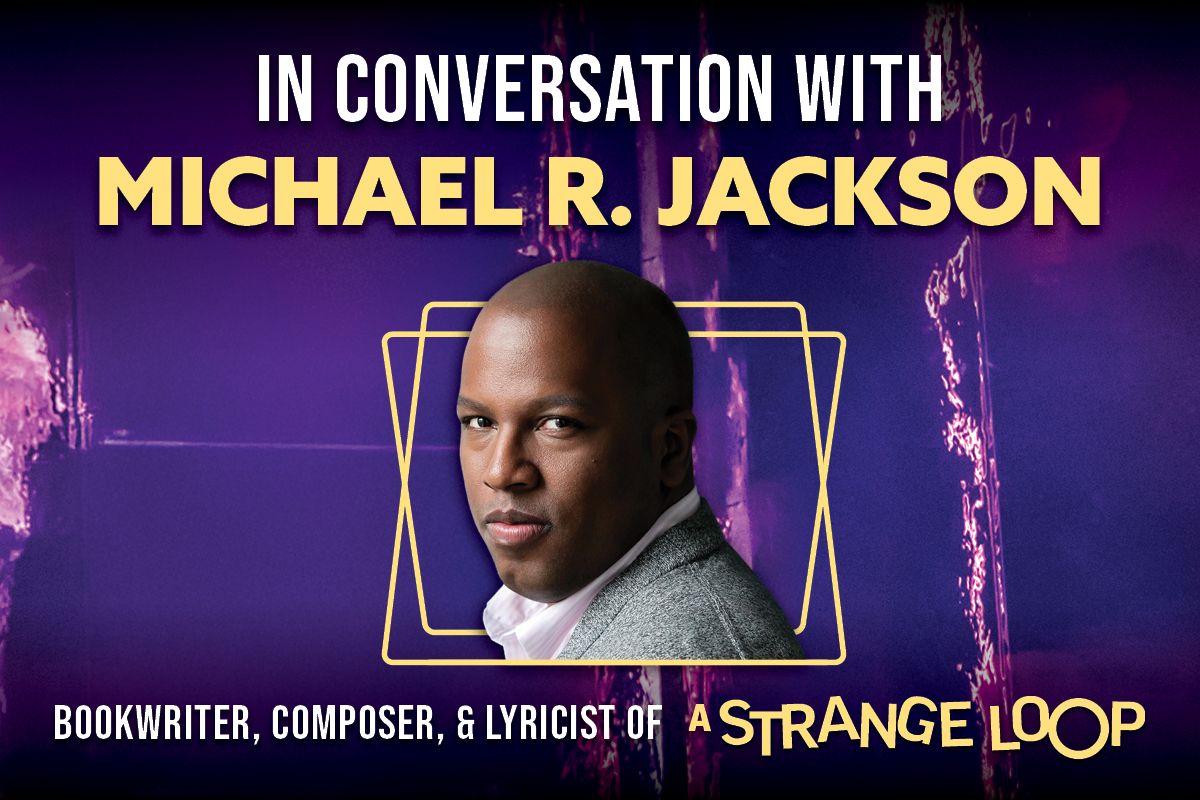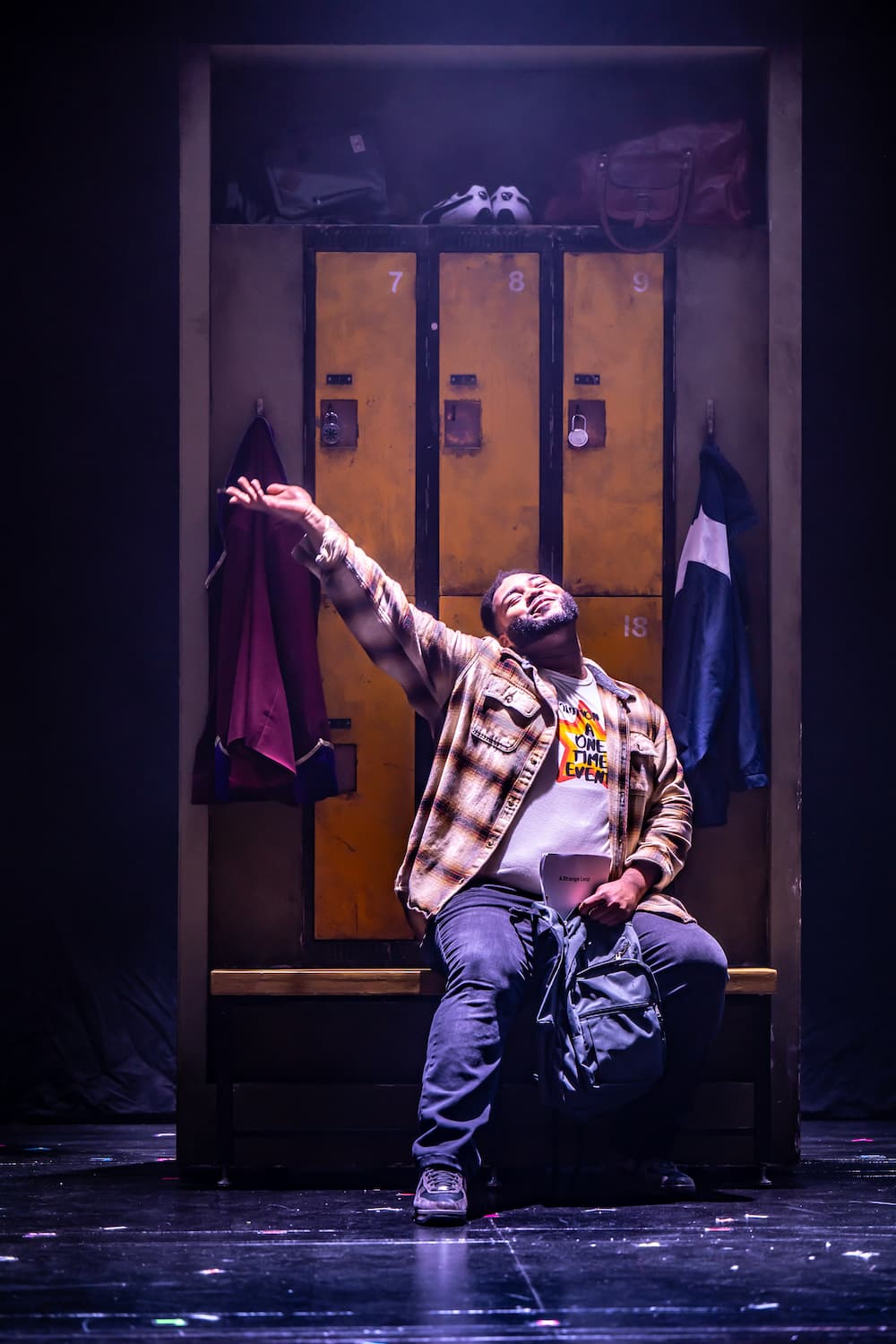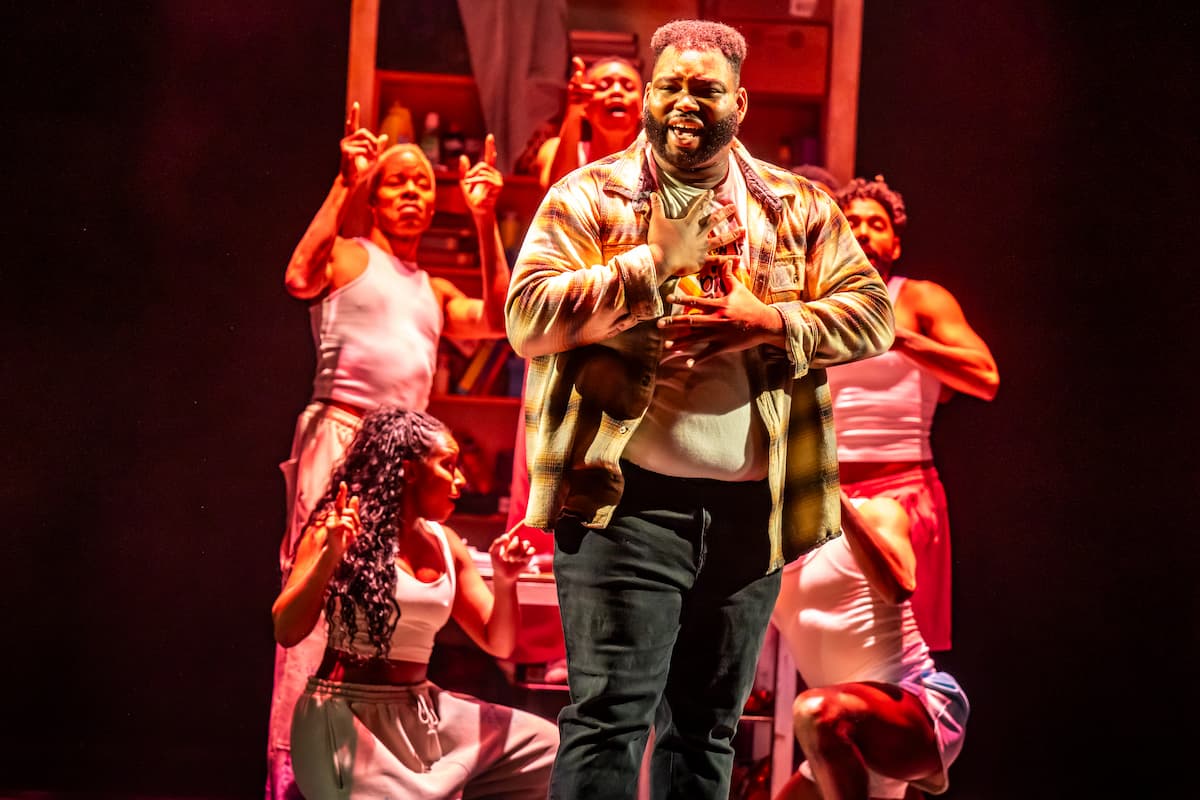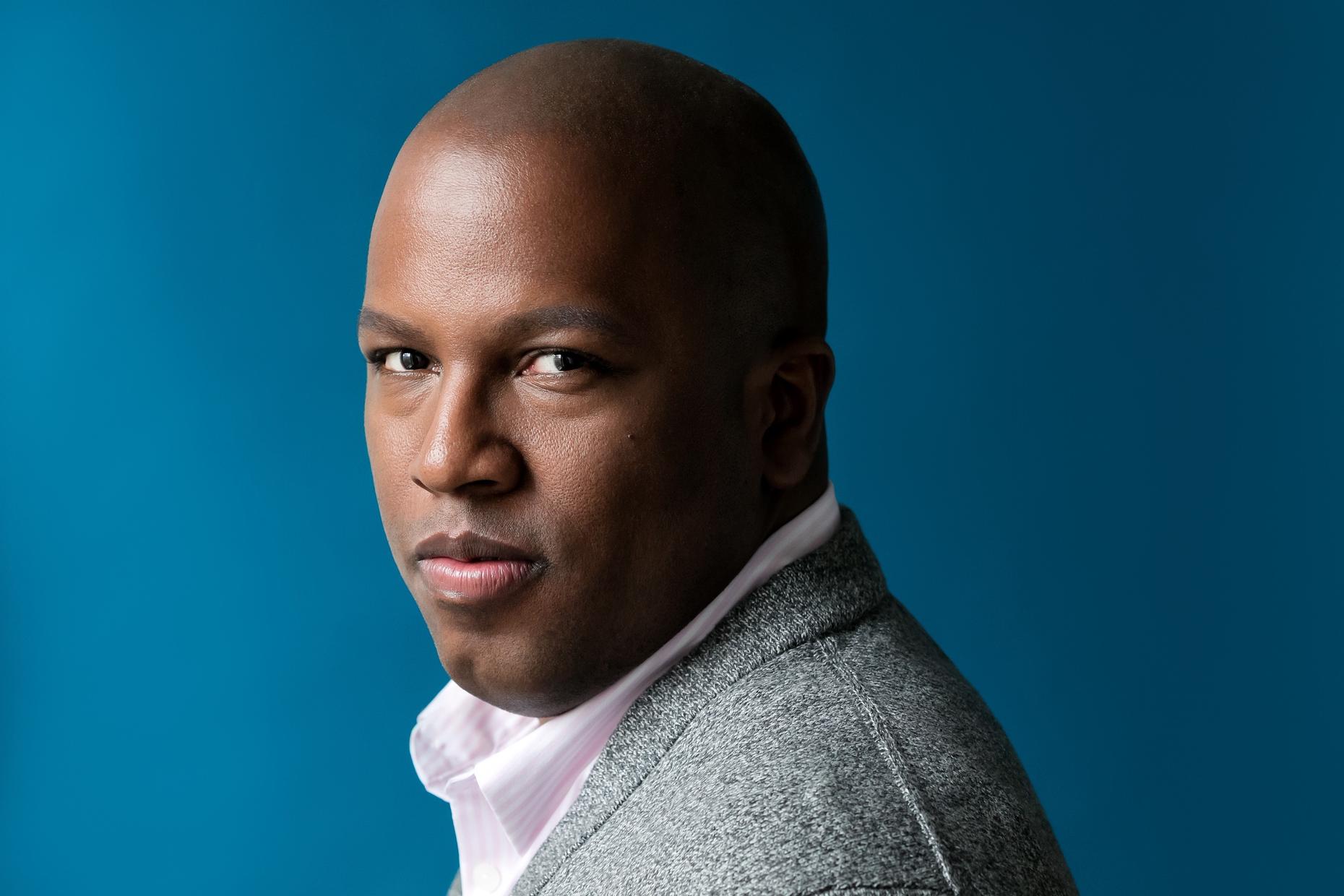
IN CONVERSATION WITH MICHAEL R. JACKSON
We sat down with the Tony Award and Pulitzer prize winning writer of A STRANGE LOOP, Michael R. Jackson! We were thrilled he was able to attend Pride night and Opening night of the show, and are still thinking about his amazing talkback conversation with Dr. Lance McCready from Black Gay Mens’ Network. If you missed it, don’t worry – we also recorded a conversation MSC had with him about the show’s inspiration, development, and international impact for you to read:
The psychological concept of A Strange Loop is so complex. What made you think that is going to make a good musical?
Well, I wasn’t really thinking that initially. It didn’t begin as a musical. It began as a monologue that I had started writing when I was about 23 years old. I had just graduated from undergrad NYU playwriting, and I was sort of thrust into the world. The world was just a kind of crazy place, and I was just this young person in that world who felt really unseen and unheard and misunderstood. And so I began writing this monologue called “Why I Can’t Get Work,” because at that time, it was a very thinly veiled personal monologue about this character, sort of wandering around New York, wondering why life is so terrible.

And then I went to grad school, and I studied musical theatre writing as a lyricist and as a book writer. And once I got a sort of a handle on song form as a lyricist, I suddenly had musical ideas about those lyrics. We had an assignment with one of our teachers who said, “If you’re a lyricist who’s never written music, or a composer who’s never written lyrics, and you want to try it, go for it.” And so I went away and I came up with Memory Song, which is a pivotal song in A STRANGE LOOP, though, at that time, it was just a standalone. I was encouraged after that to keep writing my own music and so I just kept writing my own songs, and they started to work their way into the monologue that I’d written a couple years before. A STRANGE LOOP sort of began its loop in that.
Tell me more about the development process. How long did it take the show to go from that idea to being a musical?
From the time I started writing that monologue to Off Broadway was 16 years. And then to Broadway was 18.
How do you stick with something that long?
You know, the piece was a container for so many feelings I was having, but also ideas I wanted to play with, or see if I could play with. And so it was just something I came back to. I didn’t work on it consistently that 18 years but I just always kept coming back to it, and there were no stakes. I didn’t think anyone would ever produce this musical, and so I was like, I might as well just write it then and do it however I want to do it.
In a lot of ways, it feels like the show draws from your own life experience. How much does Usher’s story mirror your own?
So I always go to great pains to describe the show as being self referential as opposed to being autobiographical because I did draw from personal experience to write the show, but it’s not as simple as an apples to apples relationship from Usher to me. Usher is a character who is perennially 25 going on 26. I’m 44. I have lived. I say, if I had used the word autobiographical, I would say emotionally autobiographical. I have felt everything that Usher has felt, but the situations are exaggerated or made up completely. And there are also the pieces about what he feels inside. So everything that you’re seeing is his perception of reality. It’s not necessarily what happened to me or to him. It’s a little like a mirage, which is what A Strange Loop essentially is. It’s an appearance. It’s an illusion.

So many people see themselves in Usher regardless of what their lived experience was. Was that something that you were expecting when you were writing it, and what do you think it is about the story that makes it connect so deeply with people from all sorts of different walks of life?
I think that because I wrote this piece from such a solitary and specific place, on some level, the piece was my attempt to try to create a piece of theatre that was a Black piece of theatre that I had never seen and a gay piece of theatre that I’d never seen. I’d seen lots of portrayals of Black characters or stories, and I’d seen a fair number of like gay or queer stories, but neither one of them fully captured something that I related to or felt. And I just wanted to see if I could create a specific portrayal that was different from anything I’d ever seen before. And I just focused on that, on my own interest, in my own point of view in shaping that.
And I think that by doing that, by the time a piece got produced, it was so specific that it was what one may call universal, because it’s just about a young person trying to find their way in the world who has a lot of self criticism and has a lot of voices in their head, and judgments, and I think that that’s something that is actually true for a lot of people, and I think that’s what they relate to.
What do you hope that audiences will take away from A STRANGE LOOP?
I always answer that question by saying I hope people come away from A STRANGE LOOP thinking about themselves, because that’s what Usher is doing. So they can relate to him by relating to themselves and their own individual journeys and struggles with their own thoughts. I think that would be beautiful. But also, as a result of that thinking about other people, realizing that everybody is somebody who has these thoughts and that we’re, you know, in a lot of ways, more alike than we are different.

A STRANGE LOOP runs until June 8 at Soulpepper Theatre. Don’t miss out on this unforgettable show!
Photos by Dahlia Katz, Graphics by Jacob Whibley

Michael R. Jackson’s A Strange Loop won the 2022 Tony Award for Best Musical and Best Book of a Musical. It was also the recipient of the 2020 Pulitzer Prize for Drama. He is also the author of White Girl in Danger, produced by the Vineyard Theatre in co-production with Second Stage Theater, and the co-author of Teeth, produced by Playwrights Horizons. Michael is the recipient of an Obie Award, Drama Desk Award, Jonathan Larson Grant, Lincoln Center Emerging Artist Award, ASCAP Foundation Harold Adamson Award, Whiting Award, and Helen Merrill Award for Playwriting. Jackson holds a BFA and MFA in playwriting and Musical Theatre Writing from the NYU Tisch School of the Arts.

